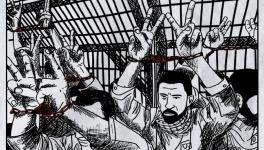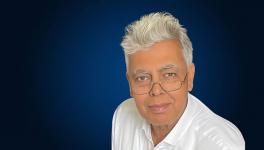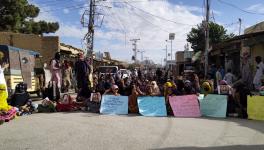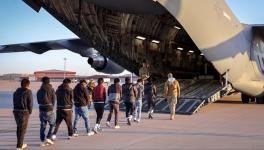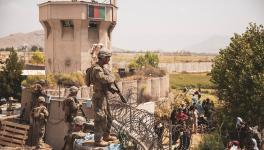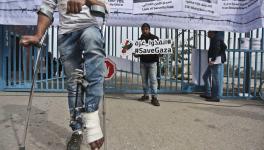Who Will Defend the Human Rights of a Missing Soldier?
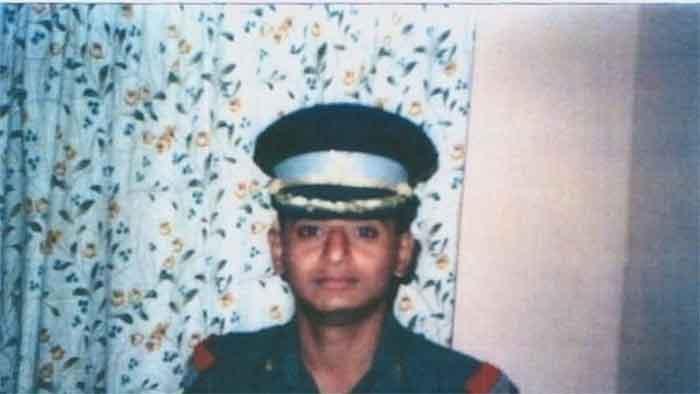
Capt. Sanjit Bhattacharjee. Image Courtesy: Countercurrents
This might sound like an odd query in a country which likes to swear by its soldiers. A soldier has pride of place in any nation and makes up the cream of society. A soldier also faces bullets while defending the country, all the while chanting “yeh dil maange more”. Falling in action makes soldiers worthy of worship, yet there are instances where they are denied those basic rights which we celebrate and take for granted.
So, it is a matter of extreme disgrace and grave concern that the basic rights to recognition and dignity, as laid down under Article 5 and Article 6 of the Universal Declaration of Human Rights have failed a soldier. They have let down Capt. Sanjit Bhattacharjee, who is a victim of another violation, that of Article 9 of the UNDHR [protection against arbitrary arrest], by his own country.
As you read this, Bhattacharjee [SS35271W, 7/8 GR], who would have been Brigadier today, is languishing in some dingy basement of a notorious Pakistani jail. He was lovingly called “Tanaji” in his unit, but now he is being called disparaging names such as “mental” and “Salim”.
Bhattacharjee left to patrol the Rann of Kutch on the border with Pakistan with his platoon on the intervening night of 19 and 20 April 1997. On the next day, fifteen of his platoon members returned, but without the captain and his shadow, Lance Naik Ram Bhadur Thapa. They have not retuned since.
On 28 November, after waiting for his youngest child for 23 years, Captain Bhattacharjee’s father died in India. His mother, aged 81, still awaits her son’s return. Lance Naik Thapa’s family’s whereabouts are unknown.
Response of Indian Army
The Army records for 24 to 28 April 1997 reveal that Capt. Bhattacharjee was handed over by Pakistani fishermen to a “Maj. Khiyani” in the Pakistan Army, between border posts 1162 and 1165. Captain Umar of the Umarkot post joined him on 28 April and the “two missing persons of Indian Army were taken to interog [interrogation] centre on the outskirts of Hyderabad [Pakistan].”
The Army did not apprise Bhattacharjee’s ailing father about any efforts it had made to trace one of their brightest, who now was in enemy custody. Bhattacharjee was also Black Belt in Karate and an obstacle lead runner. The Army did not share the findings of its Court of Inquiry with the captain’s family, saying “it is merely descriptive”.
However, in February 2005, Bhattacharjee’s father received a letter from the then defence minister expressing regret for the “untimely demise” of his son, who had earlier been “declared missing”. Another five years passed, and in May 2010, the President’s Secretariat wrote a letter informing Kamla Bhattacharjee, mother of Capt. Bhattacharjee, that her son’s name had been added to the existing list of missing prisoners of war (PoWs). Known as the “Missing 54” , this list had been taken up with Pakistani authorities at the highest level several times since 1997, including during the Agra Summit held in July 2001.
The letter to Bhattacharjee’s mother was the government’s response to a half-a-dozen petitions and reminders sent to the Southern Command of the Army, the Ministry of Defence and three Prime Ministers. This was a disappointing response from the Supreme Commander of the world’s second-largest Army. It broke the heart of the family.
Not a POW
Contrary to claims, Bhattacharjee is not a prisoner of war, as he is being made out to be. For, India was not at war with Pakistan on the night he got stuck (with the ailing Lance Naik Thapa) due to a sudden flood. It is an unpredictable tide that had turned the Rann of Kutch treacherous, and it deceived the best map-reader of the academy, who was either swept away or marooned on the Pakistani side of the border. He was rescued by Pakistani fishermen and handed over to that country’s authorities. This is a usual practice by the fishermen of India and Pakistan, while the terrain of this region is notorious for shifting and leaving people stranded.
Bhattacharjee’s situation was no different from that of a fisherman who goes out to the sea to cast his net, as he was on a regular peace-time patrol at the time. The difference is that unlike a fisherman’s net, he was carrying ammunition—which he never used against anyone.
Since April 1997, India has swapped hundreds of citizens with Pakistan, as both nations have agreed that this is a humanitarian rather than political issue. Being stranded across the wrong border in circumstances like Bhattacharjee’s is nothing but a case of painful bad luck, but it can lead to a slow death. Their situation is not unlike the depiction of the hero of the popular film, Veer Zaara, though he was propelled by a personal motive, while Bhattacharjee is suffering for his nation. Bhattacharjee is a real and not reel hero and therefore deserves a higher pedestal than other stars, whichever field they might be in.
It must be noted that Bhattacharjee is not dead—except a piece of paper signed by an insensitive bureaucrat, unworthy of the value of the ink it was written with, there is no proof of his demise. He may be missing, but he is not forgotten, at least not by his mother, who has a right to know where he is if alive and where his grave is if not.
Government Response and Road Ahead
The response, role and conduct of the authorities has been disappointing, and that is an understatement. The government’s argument has been that Pakistan has consistently denied the existence of any POWs. Therefore, it cannot do anything despite knowing that Pakistan is where these men, including Bhattacharjee, are. It has not shared any reasons for refusing to approach the International Court of Justice (ICJ) and using the Geneva Conventions, which India is a signatory to, despite a Gujarat High Court order directing it to do so in 2011.
The government’s conduct demonstrates how it disowns our bravehearts, in a way that basically exiles the missing soldiers—an act that is prohibited under Article 9 of the UNDHR.
India, however, is not just made up of bureaucrats and politicians who form its governments. Captain Bhattacharjee and Lance Naik Thapa belong to a 1.2 million strong family that will not forget any of its lost members. One is certain that these 1.2 billion people acknowledge the sacrifices of their youth and support the defenders of their motherland and want for them a rightful place—which is certainly not the jail of an enemy country. A soldier may be lost, incarcerated, tortured, and, like a formidable tree cut in half, die bit by bit, uncared-for, but he or she must never be forgotten.
If none other, they have the right to be remembered.
The author formerly taught political science in Delhi University and was national general secretary of the People’s Union for Civil Liberties. The views are personal.
Get the latest reports & analysis with people's perspective on Protests, movements & deep analytical videos, discussions of the current affairs in your Telegram app. Subscribe to NewsClick's Telegram channel & get Real-Time updates on stories, as they get published on our website.











